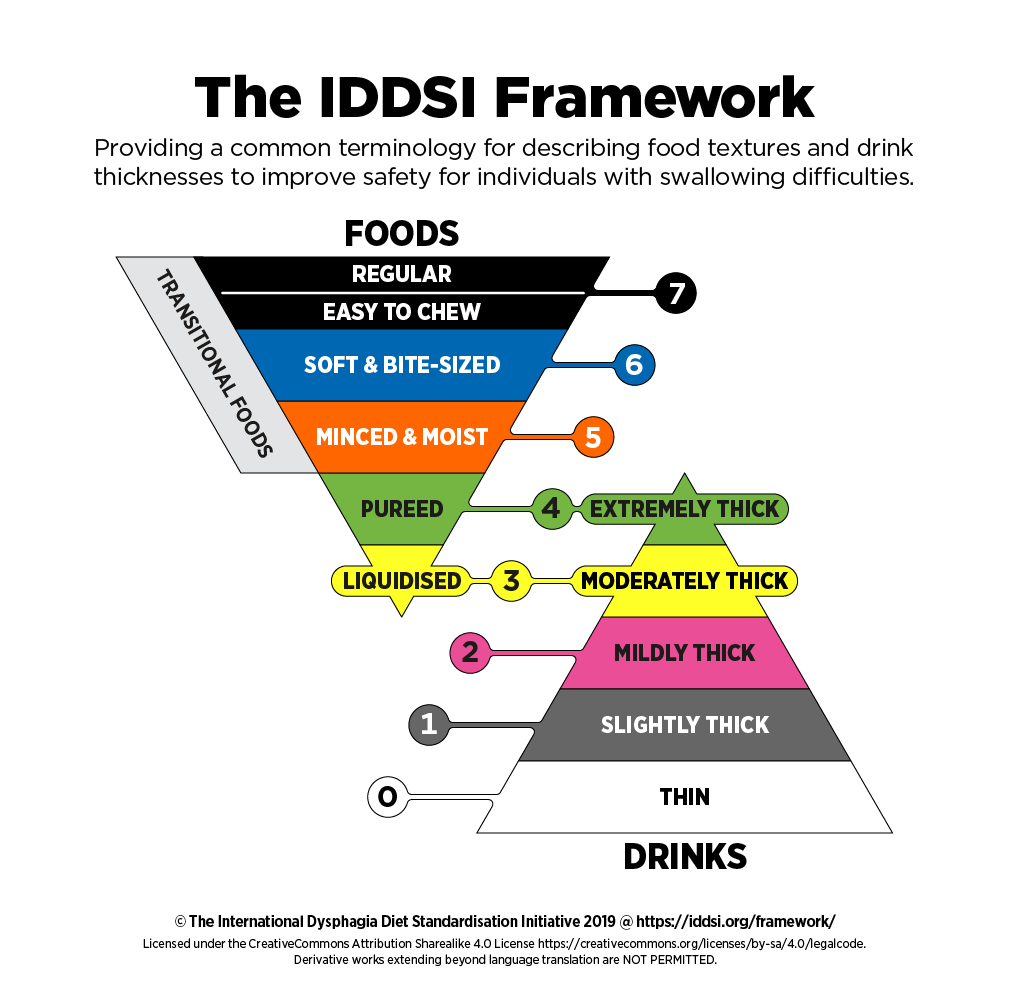
Health Resources
Articles About Dysphagia
-

IDDSI Resources
IDDSI ResourcesAll about the IDDSI Framework, compliant recipes, training programs, and more!
For Caregivers
Our experts, along with industry professionals tackle health concerns and provide tips, tricks and advice for managing health challenges in the kitchen.
A Complete Guide to Managing Dysphagia at Home
A diagnosis of dysphagia may require drastic modifications to the way you eat, drink and live. Although relatively common—roughly 1 in 25 adults in the US will be challenged by dysphagia each year—managing dysphagia at home can present unique challenges. Learn what to expect from your new diagnosis and how to best manage it at home.
LearnTips for Implementing IDDSI Guidelines
Get some practical tips for introducing IDDSI into your organization’s culture.
LearnTips for Increasing Protein Intake at Home
Learn some easy, accessible ways to add protein to your daily diet.
LearnDisaster Planning for Your Foodservice Facility
Disaster can strike at any time—is your facility prepared?
LearnHow to Deal With Food Supply Shortages in Your Foodservice Operation
Addressing shortages and coming up with solutions around food supply management is key for foodservice operations.
LearnWhy Are Food and Fluids so Important for Aging Seniors?
Did you know?
LearnRecipe for Success: Improving the Dining Experience
Helpful tips for improving the dining experience for the residents at your facility.
LearnAn Introduction to IDDSI
If you’re a healthcare or foodservice professional, you may be familiar with the unique dietary needs of those with dysphagia in your facility, and you may even have come across the IDDSI acronym before—but how much do you know? Get a quick rundown on IDDSI with our beginner’s guide, and how it can make serving those challenged by dysphagia easier.
LearnThe Role of Speech-Language Pathologists in Palliative Care
Caring for people at the end-of-life comes with a unique set of challenges and responsibilities, including trying to balance a person’s health and wellness while giving them the best quality of life possible. Karen Sheffler, MS, CCC-SLP, BCS-S provides some tips healthcare providers can use to make sure they are providing proper support for people in palliative care.
Learn











